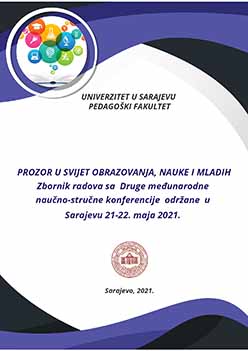ETIČKA KRITIKA I NASTAVA KNJIŽEVNOSTI U OSNOVNIM ŠKOLAMA
ETHICAL CRITICISM AND TEACHING LITERATURE IN PRIMARY SCHOOLS
Author(s): Mirzana Pašić Kodrić
Subject(s): Studies of Literature, Ethics / Practical Philosophy, School education
Published by: UNIVERZITET U SARAJEVU – PEDAGOŠKI FAKULTET
Keywords: ethical criticism; teaching; primary school; children's literature;
Summary/Abstract: The phenomenon of ethical reversal in many social sciences and humanities, including the science of literature, recognized as ethical criticism – a critical orientation associated with the ethical characteristics of the text, finds its important role in teaching literature in primary schools. In this context, it seems that children's literature offers many interpretations in the field of ethical criticism, where primary schools should be much more places where it should be discussed about the role of literature in society, its (non) impact on the individual and current social changes, etc. Children's literature and its teaching is a very suitable ground for ethical criticism due to a number of its characteristics, and among the most important are learning about ideology, interculturality and acceptance of difference, etc. In that sense, if a significant part of the approach to literature, from literary theory, through psychological-pedagogical-methodological, to philosophical-social approach to literature agrees in something, it is the fact that there is a significant relationship 190between author – literary work and characters in it – reader. Because of all this, it is inevitable to determine the influence that literature has on the pupil, i.e. on the child as a reader in the process of accepting literature.
Book: Prozor u svijet obrazovanja, nauke i mladih
- Page Range: 189-200
- Page Count: 12
- Publication Year: 2021
- Language: Bosnian
- Content File-PDF

